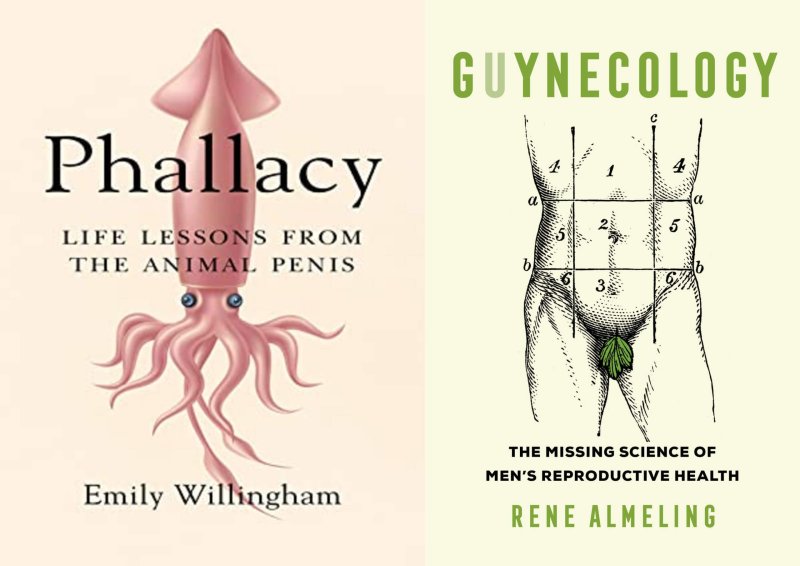It can stretch up to nine times your body length (if you’re a barnacle); be a detachable tentacle covered in suckers (if you’re an argonaut octopus); or even see, using light-sensing cells that guide it smoothly to its destination (if you’re a Japanese yellow swallowtail butterfly). Or, it can be a limp, fleshy tube, hardly worth writing home about, if you’re a human.
It is the penis, as you’ll know if you’ve read Phallacy: Life Lessons from the Animal Penis, biologist and journalist Emily Willingham’s recent exploration of phallic diversity across the animal kingdom.
Meanwhile, another book argues that what we need is even more penis science. GUYnecology: The Missing Science of Men’s Reproductive Health, by Yale sociologist Rene Almeling, asks why medicine has failed to fully probe “the male gonad,” as one scientist put it, and its role in human reproduction.
At first glance, these two very different books appear to point to the same enduring truth: that scientists—and readers—remain as penis-obsessed as ever. Or, as Willingham puts it, “Nothing gets clicks like a story about dicks.”
Actually, it’s the opposite. In both, the flashy focus on the male member serves as a Trojan horse (pun intended) for a very different message: that a culture of phallus-worship has slanted the science in crucial and sometimes unexpected ways.































